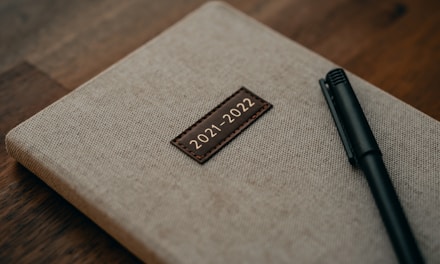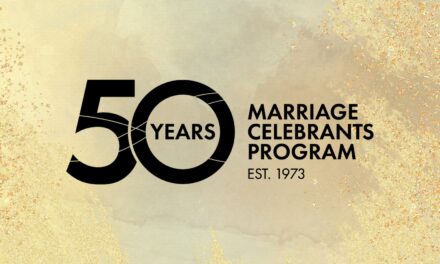As of June 12 2024 remote witnessing of Notice of Intended Marriage forms is now law and you can visit this page for an update.
Josh and I spent Wednesday in Canberra at the biannual meeting between the Marriage Law & Celebrants Section (MLCS) of the Attorney-General’s Department and repesentatives of the celebrant associations and networks. I’m delighted to report it was actually productive!
Honestly, the current MLCS team are a dream to work with. They are interested and engaged, they listen, they seem to genuinely want to help make things better, and they actually follow up when they say they’re going to do something! For years I shied away from joining this group, having read all the available minutes of meetings and seeing they really just talked about the same things every meeting and nothing ever got done. Those days seem to be long gone, and it’s extremely refreshing.
This week’s meeting involved a wide range of conversation topics, and there was enough space and time for us to examine many of them deeply. Here’s an overview of what we talked about.
Miscellaneous Measures Bill
There was some info on the Miscellaneous Measures Bill that I’ve previously reported on, noting that it’s now been referred to a Senate Committee that is due to report on 1 February 2024. The Celebrant Institute has been invited to make a submission to this inquiry, which we will do in the next few weeks, but an inquiry like this means passing of the Bill is likely to be slower than anticipated; there may be amendments that come out of the inquiry, and getting those written and consulted on takes time. So after 31 December 2023 we won’t be remote witnessing signatures on NOIMs again for a few months.
Commonwealth statutory declarations
There are some changes to the Commonwealth statutory declaration form and signing process that will come into effect on 1 January 2024: there have been some slight changes to the form, and there will now be three ways to sign a Comm stat dec (paper, electronic, and digital), and communication about these changes will be coming from MLCS (and on the webpage linked above) in the new year. This impacts us mostly for stat decs re date and place of birth where getting a birth certificate is impracticable, and the stat dec signed before a ceremony by interpreters. This is not a massive change but it needs a bit more work from MLCS (particularly re the interpreter documentation) so watch this space for more info to come.
Happily ever before … and after
MLCS has drafted a great new version of the HEBA document, based on some work The Celebrant Society had done. It’s simplifying and neutralising the language, and it also includes some new information that I requested stating that once the couple has said their legal vows, they’re married, and that the celebrant is legally obligated to submit their documents to BDM for registration. This is on the back of many instances this year (including one of my own) where a celebrant has been asked not to submit documents to BDM because the couple has broken up or whatever. Even if they don’t read it when we give it to them, it will great to have something to show the couple to say look, you’re already married, and I have to send the documents in.
Guidelines review
The Guidelines review is essentially finished, but MLCS has decided to sit on it until the Miscellaneous Measures Bill passes (or doesn’t); there’s not much point putting a document out for consultation now if it’s only going to have to be updated in a few months. Once it has been updated when the Bill passes (or doesn’t), it will go to the associations/networks again for review, and out for public consultation. We asked how public that consultation will be; will it literally be available to absolutely anyone? I can only see that leading to disaster where people who have no understanding of the Marriage Act or the role of the celebrant are given the chance to comment on the document. MLCS is looking into how targeted they can make it, but it’s hopeful that the consultation will only be sent to stakeholders such as celebrants, BDMs, and maybe family lawyers.
Ongoing Professional Development
As at 4 December, more than 3000 celebrants haven’t done their OPD. MLCS acknowledges the issues with the portal, but because of that they’ve made paper tasks available. Apparently anyone who hadn’t completed OPD was sent an email on 20 October with links to download the activities that they could complete and send back to MLCS. They’re about to start sending those emails again once a week for the rest of the year. If you haven’t done your OPD, get it done ASAP! You don’t want to get stuck doing double OPD next year or even getting suspended for a few months!
They’re hoping to have OPD available earlier in 2024 than it was this year.
They acknowledged that many celebrants are asking for face to face OPD to return; they’re working with the legislated framework they inherited (1-2 hours a year delivered online by MLCS free of charge) and will need time to change the legislation to return to the old system if they decide to go down that path. There are no immediate plans to do so, but if this is something you feel passionate about, feel free to email MLCS.
Updating the Marriage Act
I presented the paper I have written about updating the Marriage Act to the other associations/networks. My hope is that we can get to a point where we agree on the contents so that we can all co-sign a document to send to the Attorney-General – strength in numbers! Once the associations/networks have agreed on it, we’ll also upload it to the website we created for this earlier in the year so all celebrants have the opportunity to send it to their local Federal MPs. I’m not sharing it more widely yet because I want to get the feedback from the other associations/networks first, and I think it’s important that this is a united, concerted effort at the same time rather than bits of it being sent to various places in dribs and drabs 🙂
Mark from the Alliance of Celebrants Queensland reported on his project to have the prohibited relationships definition broadened to take into account more genetics between relations: right now you can’t marry an ascendant, descendant or sibling, because you might end up with babies with birth defects from genetically similar people procreating together. However, you can marry an aunt, uncle, or cousin, which means a person could feasibly marry their parent’s identical twin, who for all intents and purposes is genetically identical to their parent. Cousins whose parents are identical twins are also as close genetically as half-siblings. This is certainly something I’d never thought about, and now I can’t get it out of my mind! We’ve added his work to my paper about updates to the Act.
Out of hours shortenings of time
This has been an issue discussed at these meetings as long as they’ve been happening: at the moment it is next to impossible to access a prescribed authority about a shortening of time application out of hours, especially on weekends and public holidays. This is really only relevant for medical reasons shortenings. I’ve heard of at least 10 situations in the last two years (including one I dealt with myself) where a party to a marriage or a close family member’s health deteriorated quickly over a weekend, but no prescribed authority was available to authorise a shortening of time, and they died before a marriage could take place. My situation happened on Grand Final weekend in Melbourne; the groom’s father was expected to last another week or so when I met the couple on the Thursday. I submitted the shortening application that afternoon, but the next day was the Grand Final Friday public holiday. The father went downhill far quicker than expected, and by the time BDM even opened the email on the Monday morning, he was dead.
Every Registrar before now has said this isn’t their issue, that only BDMs and state courts (where prescribed authorities are based) can make changes to their rosters to enable prescribed authorities to be available out of hours. For the first time, our current Registrar said she was interested, she didn’t know if she’d be able to do anything to help, but she was prepared to look into it, see if she could figure out the scope of the issue, and examine whether there was anything at all the could do.
THIS IS MASSIVE PROGRESS!!!
We all agreed to collect stories from our members about instances of a medical shortening really being needed and not being available out of hours. If you’ve got such a story, please email it to us at hello@celebrant.institute.
And that was it! It was a full and productive meeting, and I’m feeling pretty hopeful about the future 🙂 Let me know if you have any questions!







Recent Comments